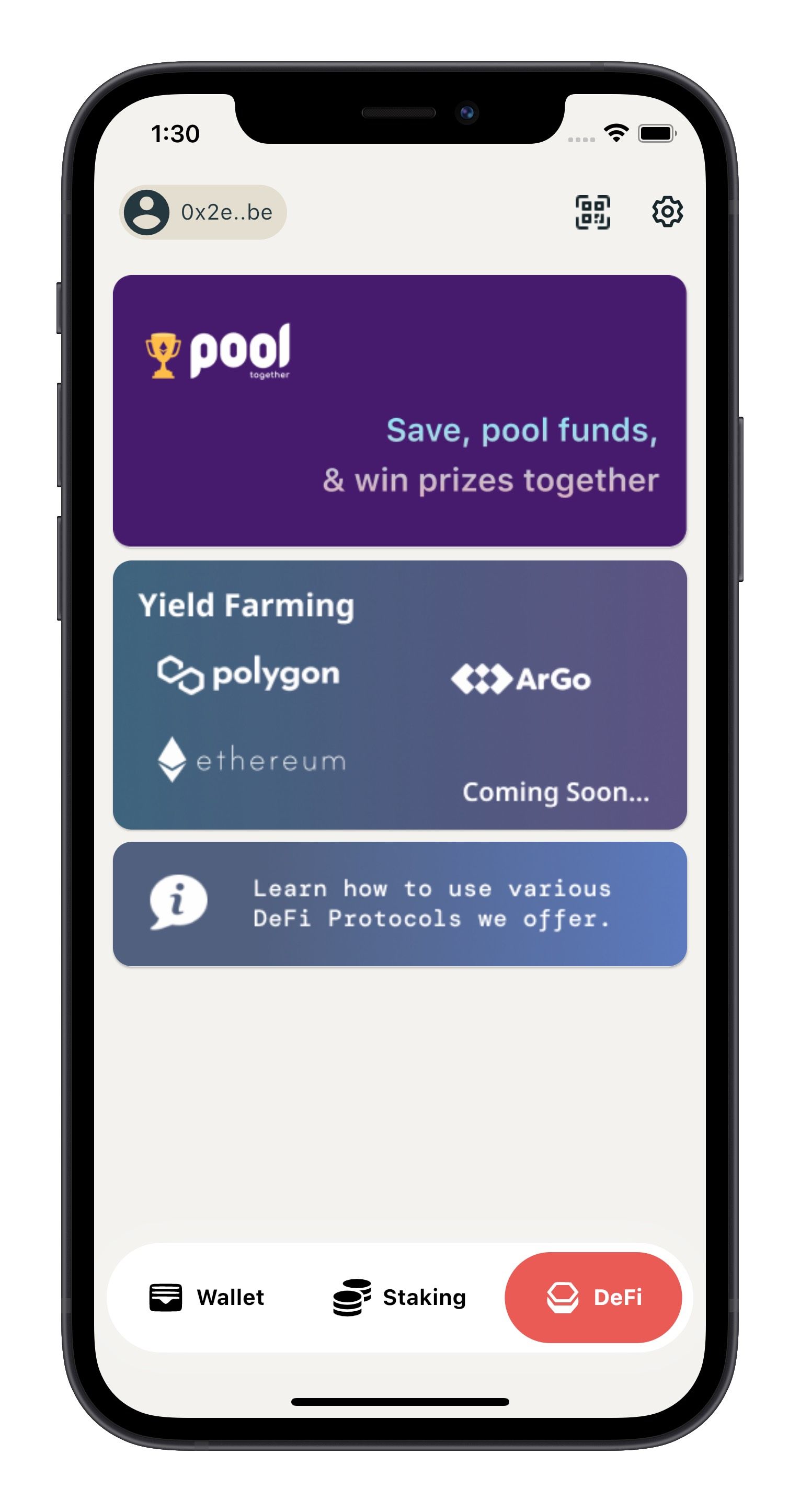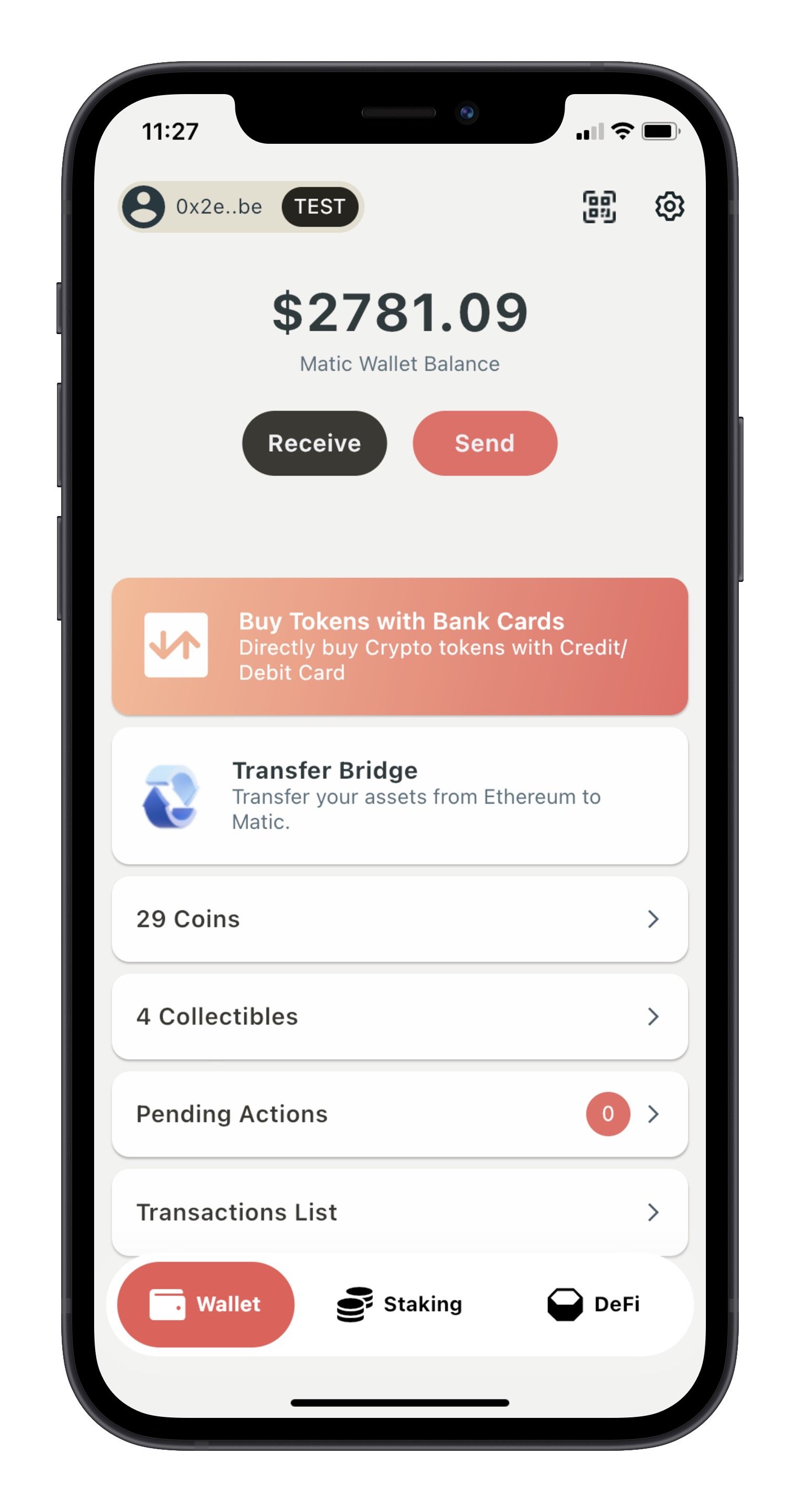For engineering college batchmates Abhimanyu Shekhawat and Akshit Ostwal, the COVID-19 pandemic presented an opportunity.
With no offline classes to attend at JECRC University, Jaipur, the two developers had time on their hands to build new products.
Abhimanyu, who specialised in blockchain development, and Akshit, who was into mobile app and Flutter development, started building a mobile wallet for users to access Decentralised Finance (DeFi) apps in a simple manner.
“Akshit and I had seen transactions on the Ethereum blockchain were expensive and time-consuming. There was also limited infrastructure on Polygon and other Layer 2 solutions, which meant users had no mobile app experience for DeFi. So in December 2020, we started building Orange Wallet to address these problems,” says Abhimanyu, Co-founder at Orange Wallet.
The duo received a grant from Polygon (they did not disclose the amount) to build the codebase and take Orange Wallet live as a mobile wallet for Polygon, with support for wallet connect, staking, and DeFi.
“At the moment, we don’t have a registered headquarters. We are looking to soon set up the business where regulations and policy are conducive to such product development. We have Singapore, Estonia, and a few other options in mind,” Abhimanyu adds.
What sets Orange Wallet apart?
With users more accustomed to using centralised financial services on mobile, there is a need for a simple DeFi mobile wallet to allow users to access decentralised financial services.

The DeFi section on Orange Wallet
Abhimanyu and Akshit’s startup is looking to tap into this segment, and allow users to manage all their DeFi assets on the Orange Wallet app.
While other wallets, such as MetaMask and Trust Wallet, also enable users to send and receive cryptocurrency tokens, they don’t offer a wide range of other features, claim the founders.
According to them, Orange Wallet stands out from the rest because it provides support for users to move from the Ethereum blockchain to Polygon, connect easily to DeFi, and more.
Akshit explains, “If a user goes to the website of a DeFi app, they have to connect their wallet, blockchain network, etc. But we give them a total mobile integration of the DeFi platform."
"Users need to only switch to the DeFi tab on our app to access the DeFi features and protocols that have been integrated with Orange Wallet.”
According to him, most other wallets tend to only provide the web view of the app, instead of an intuitive and easy-to-use UI on mobile.
Business and revenue model
The Orange Wallet app is presently free to use. The founders claim it has over 10,000 downloads on Google Play Store and over 2,000 active users. The iOS version is in a beta testing stage.
The five-member startup is in a pre-revenue stage, and plans to someday launch its own token and build a community-based governance model. It is also thinking of introducing small transaction fees or a fee-based model at a later stage.
“Besides the initial Polygon grant, we got a second one from them, and also another from PoolTogether. We are also looking to work with investors or receive more grants. This way, we plan to increase our runway and keep building Orange Wallet,” Abhimanyu says.
The duo are now focusing on integrations with DeFi protocols on Polygon including PoolTogether, Aave, SushiSwap, and more. They have already enabled features to store and access NFTs, besides its flagship DeFi experience.
Soon, they plan to build initial infrastructure in their wallet for Binance Smart Chain and integrate protocols from its blockchain, such as PancakeSwap, Autofarm and more.
“We will proactively look at including more sidechains and Layer 2 networks in Orange Wallet. So from a Polygon-focussed wallet we aim to become a Layer 2-focused product,” Akshit says.
Building amidst regulatory uncertainty

The crypto wallet section on Orange Wallet's app
Orange Wallet is still in its nascent stages, and the engineering batchmates have faced hiccups with the product even before it was launched.
Through 2018 and 2019, when the idea for building a DeFi mobile wallet was taking shape in their minds, the RBI banned Indian banks from supporting crypto transactions.
“We thought it might be better to switch to a different industry and forget about blockchain and cryptocurrency. But we stuck on and worked on our idea even at the lowest points of the market. Recently, we have seen a revival in the market [post the lifting of the ban on crypto],” Abhimanyu says.
“However, if regulators still go ahead and ban crypto, there’s nothing we can do about it except register our headquarters outside India and continue building Orange Wallet. Therefore, we urge the regulators to recognise Indian innovation in blockchain in a good light, and make laws that are conducive to it.”
The Orange Wallet founders are now working in an Indian crypto market that has been rapidly growing despite regulatory uncertainty.
A recent report by blockchain data platform Chainalysis ranked India second in terms of global crypto adoption in 2021, with global crypto adoption rising over 880 percent in the last year.
In the report titled 'The 2021 Global Crypto Adoption Index', Chainalysis ranked India just behind Vietnam, which took first place out of 154 countries surveyed.
However, crypto traders await the nation’s bill on cryptocurrency regulation, where it has been allegedly recommended that all private cryptocurrencies, except any virtual currencies issued by the state, will be prohibited in India.
Edited by Teja Lele Desai
Link : https://yourstory.com/2021/08/orange-wallet-defi-mobile-app-polygon
Author :- Rishabh Mansur ( )
September 01, 2021 at 05:15AM
YourStory

